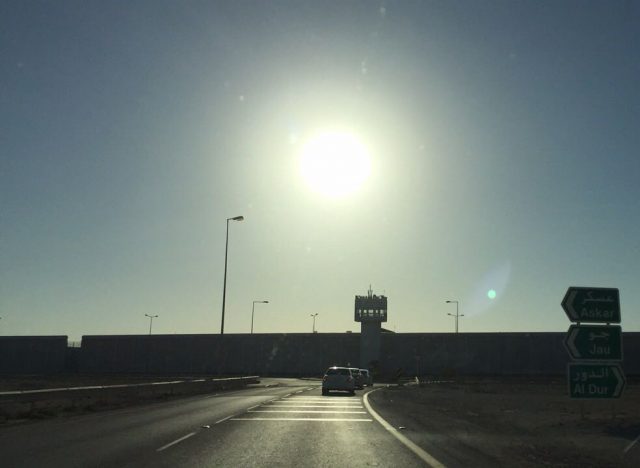23 August 2019 – Bahraini prisoner Ali Fakhrawi, one of hundreds of Bahraini prisoners on hunger strike, sent a voice recording from Jau Prison, detailing the appalling conditions for individuals in the “isolation” buildings – while they are not held in solitary confinement, they are held with individuals with which they do not share a common language, culture, or religion. The prisoners claim that this is an intentional move by the prison authorities to isolate political prisoners while still maintaining that they are not held in solitary confinement.
On 15 August 2019, 15 of the prisoners in these “isolation” cells began a hunger strike to protest these conditions. Since then, the number has grown to include 196 additional prisoners in Jau, as well as a reported 400 individuals detained in Dry Dock Detention Center. The demands for those on hunger strike are that the prison end religious persecution, remove barriers during family visitation, end the “isolation” practice, and to stop beatings by prison guards.
A transcript of the recording is below.*
Prolonged Confinement and Jau Prison Conditions, especially in Buildings 12, 13, and 14
For almost three years now inmates have been locked behind solid walls and solid steel doors inside small prison cells for over 23 hours a day. They can’t interact with prisoners in other cells, even the ones next to them or opposite to them. It’s only during the 45 minutes of recreation period that they can interact with other inmates. The recreation area is simply an open space between one building and the next, surrounded by very high solid walls from all sides with a hard asphalt ground. There is no shade, and the recreation area has no recreation equipment or facilities at all, so inmates are subjected to temperatures of up to 48 degrees Celsius [118 Fahrenheit] and direct, burning sun rays. Since inmates are locked in their cells for 23 hours or more, the opportunity to breathe some fresh air and meet other inmates is so precious that they risk the temperatures and mid-noon burning sun rays and rush to the open space. This very basic facility has become a luxury in Jau Prison.
However, this luxury is not available for all cells. Especially cells number 1 on the ground and first floor, and cell number 4 in the first floor. Inmates of this cell are doomed and consequently are not allowed to mix with any inmates of other cells – when they go to the open area, each cell will go on its own. This confinement is an open-ended punishment. Once prison authorities have labelled an inmate as a provocateur or a “security risk,” they take him to one of these cells with no hope of getting out of this condition until he serves his sentence. Literally an inmate cannot reverse this confinement condition even if he threatens to kill himself. It’s a very harsh and inhumane punishment that contradicts the very basic human rights and dignity. It affects many prisoners of conscience, who are serving long prison sentences up to 25 years.
All attempts to revert or even ease the situation from inside the prison has failed. As such, there is a great need for some pressure from the outside, from international activists and human rights defenders. The sooner the action the better, since most the confinement cases have already lasted for three to four years. Thank you for your precious support.
*The transcript has been lightly edited for clarity.





